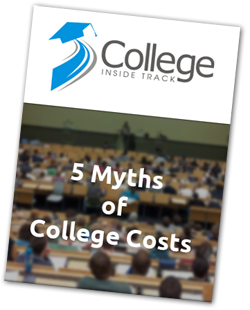Where Parents
Go to Learn
Insider tips for the week of January 29, 2018
Straight talk from college admissions officers to parents – Brennan Barnard collected candid advice to share with you. While some of it may be hard to stomach, it is valuable to get an insider perspective from the other side of the desk. Check out the article in the Washington Post. Are you a helicopter,…
Insider tips for the week of January 1, 2018
How to talk about money with your student – Affording college is a big issues for parents and their kids; take a few minutes to read some helpful tips shared with Money Magazine by Karen Levin Coburn, author of a recent book on the topic. My favorite takeaway: Parents should start out with a clear idea…
Need-to-know education changes in tax bill
The new tax bill will affect numerous areas of education funding and college planning. After numerous versions and last-minute changes, here is a summary of what did (and didn’t) happen: College tuition benefits – Originally targeted to be taxed, tuition benefits for grad students or children and spouses of employees remain tax-exempt. 529 plans –…
Insider tips for the week of December 4, 2017
15 things every parent needs to know – A thought-provoking list from DIY College Rankings. My two favorites are 1) You set the expectation for acceptable colleges — not the rankings, your peers or your child’s peers and 2) You shouldn’t base your expectations on another family’s experiences. Take a few minutes to scan the…
Insider tips for the week of November 13, 2017
Knowing this one thing about a college can save you money – A commonly overlooked cost is how long it takes a student to graduate not just from a specific institution, but from a specific program at that institution. Consider the double whammy of potentially needing an extra year to graduate because classes may be…
Insider tips for the week of October 16, 2017
10 tips to get the most financial aid – Time magazine has 10 practical tips to help families get the most out of the FAFSA. Take-aways include moving money out of your child’s bank and brokerage accounts and appealing disappointing aid packages. College fair do’s and don’ts – Check out this goofy 3 min…
Insider tips for the week of Sept. 18, 2017
Top 10 things admissions officers care most about – Here are the 10 factors that college admissions officers say they put the most weight on, according to a new survey. One big surprise: Test scores aren’t even in the top three. 7 things to know about college rankings – A must-read for any family…
4 essential FAFSA tips
The FAFSA is now available for families of HS seniors and college students starting October 1 and will use tax info from 2 years prior to the term being applied for (2016 tax year info for students starting college in Fall 2018), which was a change made last year. We see families commonly make significant…
Insider tips for the week of August 21, 2017
5 tips to pay less for college – A great read worth a couple minutes from Jeanmarie Keller. I especially like #4 – build your list of colleges based on your situation and the college’s financial aid policies. Just because you need financial aid doesn’t mean the college has to give it to you. …
Insider tips for the week of July 24, 2017
The #1 college shock, according to other families – What’s the biggest financial surprise awaiting families of college-bound students? Check out the answer from a Money Magazine/Barnes & Noble college survey. 6 questions you need to ask on your college tours – With many families using summer break to visit colleges,…










